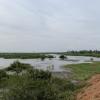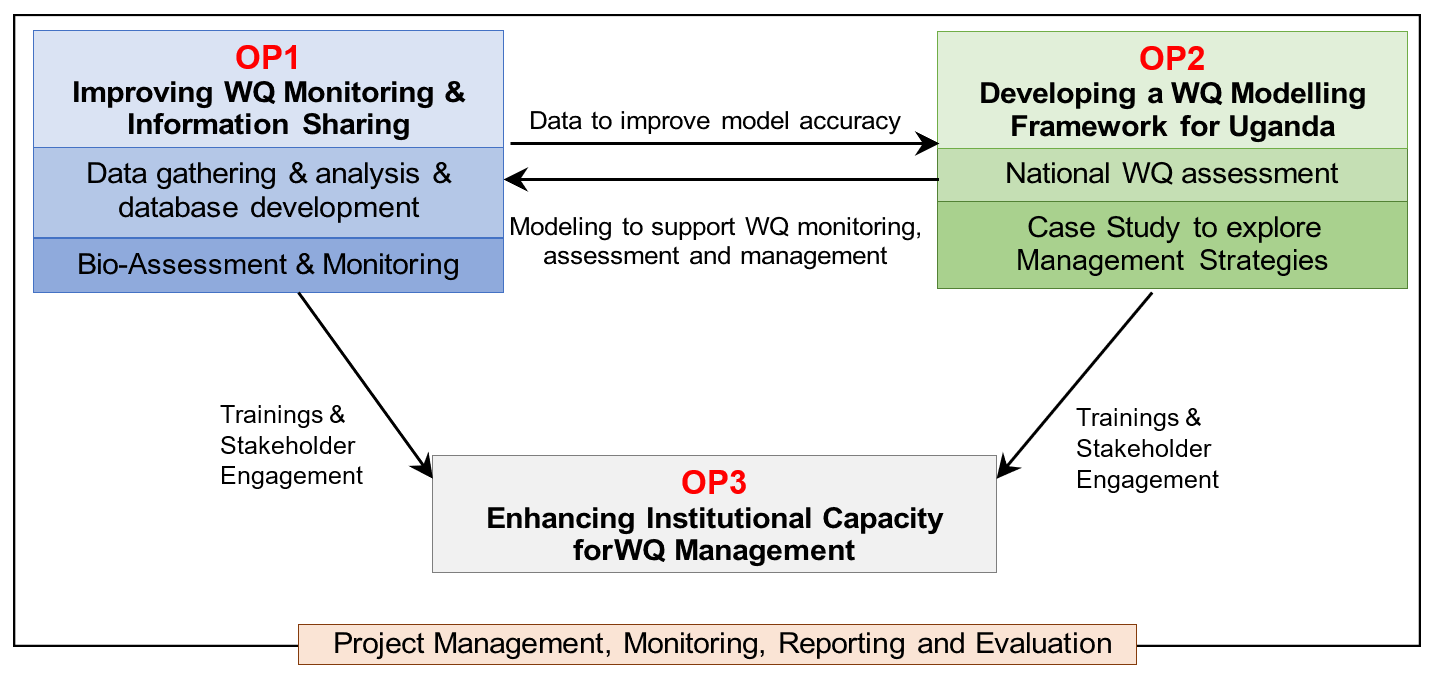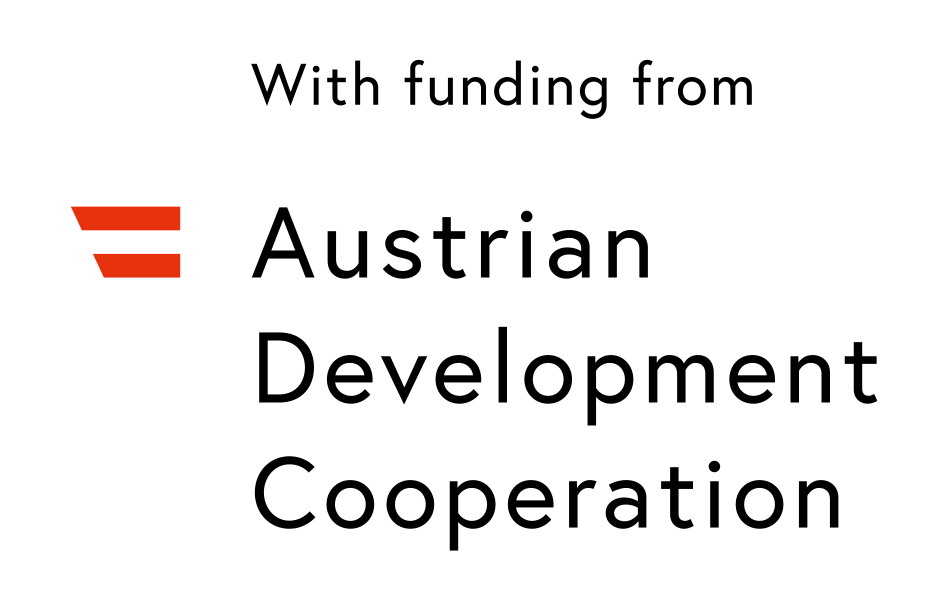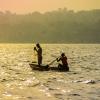
Water quality challenges are major threats to human health, ecosystem health and economic development in Uganda, but inadequate data and capacity prevents effective management of water quality.
Project Objective and Expected Outputs
The SWAQ-Uganda project aims to contribute to the sustainable management of water resources in Uganda, with the expected outcomes of "improved knowledge and enhanced capacity in water quality management" to support of policy making and effective water resources management.
Three main outputs areas (OP) are identified to achieve the proposed outcome and are structured in the graphic below.
- OP 1: "Improving water quality monitoring and information sharing, through existing data collation and monitoring".
- OP2: "Developing a water quality modelling framework for Uganda, covering nationwide baseline setup and a case study".
- OP3: "Enhancing institutional capacity for water quality management to inform policy and practice".
 © @IIASA
© @IIASA
Better understanding of the water quality status in Uganda and improved capacity will both contribute to better management of water quality and water resources. This in turn will further contribute to the health, well-being and livelihood improvement of the population, sustainable economic development and poverty eradication in the country.
Beneficiaries for this Project
The project is primarily targeted towards the Directorate of Water Resources Management (DWRM) of the Ministry of Water and Environment (MWE) of Uganda. Practitioners, policymakers and researchers from Ugandan governments and universities working in the water sector will directly benefit from the trainings on water quality related aspects. The DWRM, as an institution with an overall mandate for water resources management in Uganda, is the main target institution for the tailored institutional capacity enhancement. Other direct beneficiaries include the national and regional development partners, investors, civil society organisations and scientists. Due to the impact of water quality on human health and ecosystem services, a much larger group of indirect beneficiaries is also envisioned at the impact level, namely the Ugandans who directly or indirectly suffer from water pollution.
 © ADA
© ADA
Partnership
The project will be led by the International Institute for Applied Systems Analysis (IIASA), with the University of Natural Resources and Life Sciences, Vienna (BOKU) and DWRM of the Ministry of Water and Environment of Uganda as partners.
The project is funded by the Austrian Development Agency and contributions of the three partner organisations.
News

03 October 2023

